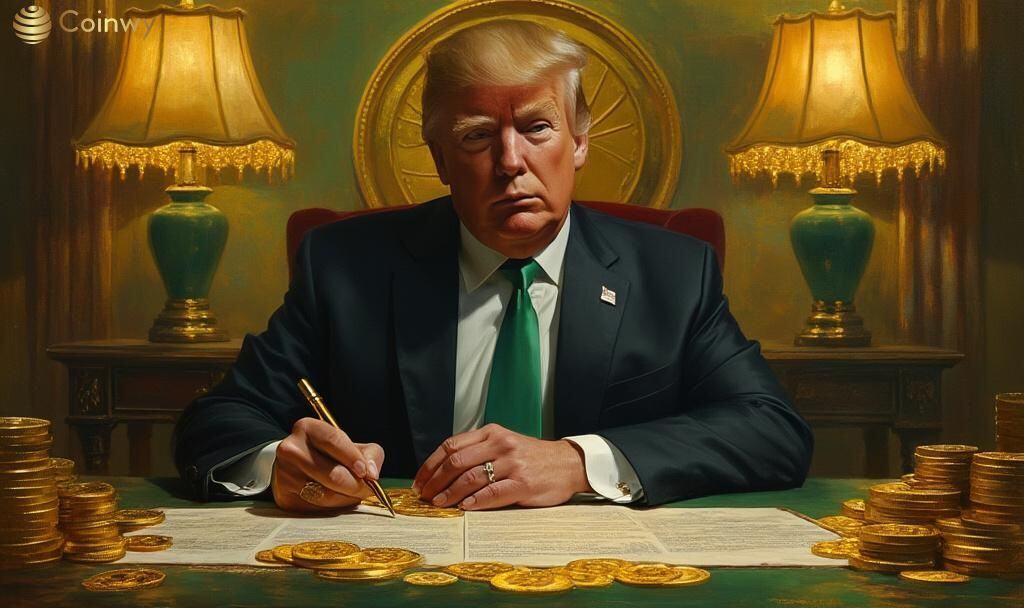- American Bitcoin buys 1,414 BTC, total holdings now 3,865 BTC.
- Linked to Eric Trump, endorsing pro-crypto stance.
- Regulatory shifts may influence further Bitcoin investments.
American Bitcoin, linked to Eric and Donald Trump Jr., witnessed a surge in its stock, rising 5% after purchasing 1,414 BTC, enhancing its total cryptocurrency holdings.
This purchase strengthens its Bitcoin reserve, likely influencing market perception of institutional crypto endorsement and potentially boosting Bitcoin’s price momentum.
American Bitcoin, linked to Eric Trump, has increased its Bitcoin holdings significantly. The purchase of 1,414 BTC has generated substantial interest in the crypto community and highlights ongoing institutional investments in Bitcoin.
Association with Trump Family
Eric Trump and Donald Trump Jr. are associated with American Bitcoin. As advocates of cryptocurrency, they have pushed for greater Bitcoin adoption, reflecting their family’s broader support for pro-crypto legislation and investment strategies. Eric Trump, Co-founder, American Bitcoin, stated, “The Trump family strongly supports cryptocurrency adoption and we believe in its potential impact on Bitcoin’s growth.” Source
Market Reactions
Market reactions have been positive with a reported 5% rise in Bitcoin. The company’s strategy to increase its holdings captures interest due to its alignment with larger institutional trends in digital asset investments.
Financial Implications
The financial implications of this acquisition are significant, with increased Bitcoin reserves potentially enhancing American Bitcoin’s market position. The emphasis on a “Satoshis Per Share” metric aligns with growing investor interest in crypto dividends and returns.
Institutional Trends and Capital Influx
American Bitcoin’s acquisitions mirror prior investments by Trump-linked ventures. The $220 million raised for Bitcoin allocation shows strong capital influx, indicating broad confidence in Bitcoin’s long-term value. Potential impacts include heightened institutional trust and a need for regulatory adaptation. If U.S. regulatory frameworks evolve to accommodate such investments, it could drive further institutional and corporate participation in the crypto space.






